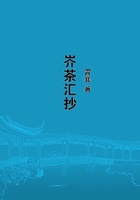refused to comply, and as a consequence the Portuguese ambassador was recalled from Rome and communications with the Holy See were interrupted. The extension of the feast of Gregory VII. (Hildebrand)to the whole Church gave great offence to many rulers both Catholic and Protestant, because such a step was interpreted as a direct challenge to the new theories of secular intervention in ecclesiastical affairs. Benedict XIII. was a saintly ruler, whose only misfortune was that he relied too much on unworthy councillors like Cardinal Coscia and Cardinal Lercari, who deceived him in their negotiations with the governments of Europe and in the administration of the Papal States. A rebellion against these men broke out in Rome when the news of the Pope's death became public. Cardinal Coscia was deprived of his dignity and imprisoned, while many of his associates and subordinates were punished no less severely.
Cardinal Corsini who succeeded as Clement XII. (1730-1740) was faced with a very difficult situation in Rome and in the Papal States. The treasury was empty, the finances were in disorder, and the discontent was general. The Pope, though very old, delicate, and almost completely blind, showed wonderful energy and administrative ability.
The financial affairs of the government were placed upon a proper footing. Instead of a deficit there was soon a surplus, which was expended in beautifying the city, in opening up the port of Ancona, and in the drainage and reclamation of the marshes. Like his predecessors, Clement XII. had much to suffer from the Catholic rulers of Europe. He was engaged in a quarrel with the King of Savoy because he tried to limit the privileges that had been conceded to this sovereign by his predecessor. Philip V. of Spain demanded that the Pope should confer a cardinal's hat together with the Archbishoprics of Seville and Toledo on his son, then only nine years of age. The Pope endeavoured to satisfy the king by granting the temporal administration of Toledo until the boy should reach the canonical age for the reception of Orders (1735), but owing to an attack made upon the Spanish ambassador in Rome during a popular commotion the courts of Naples and Madrid dismissed the papal ambassador and broke off relations with the Holy See. Peace, however, was restored with Spain in 1737, and with Naples in the following year. Clement XII. condemned the Freemasons (1738). He canonised Vincent de Paul, John Francis Regis, and Juliana Falconieri.
The conclave that followed lasted six months before any of the candidates could secure the required majority. At last Cardinal Lambertini was elected and proclaimed under the title of Benedict XIV.[5] (1740-58). In many particulars, but more especially as a scholar and a writer, he may be regarded as one of the greatest Popes of modern times. He was born in 1675, was educated at Rome and Bologna, and even as a very young man he was looked upon as a leading authority on canon law and theology. He rose steadily from position to position in Rome till at last he found himself cardinal and Archbishop of Bologna. As archbishop he was most successful in the discharge of all the duties that appertained to his office. He held diocesan synods regularly, visited the most distant parishes of his diocese, superintended the education of his clerical students for whom he drew up a new plan of studies, and above all he strove to maintain most friendly relations with both priests and people. But notwithstanding his cares of office he found time to continue his studies, and to prepare learned volumes on Canon Law, Theology, and History, that placed him amongst the leading scholars of his time.
Nor did he change his policy or his course of life after his election to the papal throne. Benedict XIV. was convinced that a better training would help to strengthen the influence of the clergy, and would enable them to combat more successfully the rising spirit of unbelief. Hence he was anxious to introduce into the colleges more modern educational methods. He founded four academies, one for Christian Archaeology, one for Canon Law, one for Church History, and one for the special study of the history of the Councils. He gave every encouragement to priests who wished to devote themselves to literary pursuits, and in his own person he showed how much could be done in this direction without any neglect of duty. His instructions and encyclicals were learned treatises, in which no aspect of the subject he handled was neglected. His decrees on marriage, especially on mixed marriages (/Magnae Nobis admirationis/, 1748), on Penance, and on the Oriental Rites were of vital importance. Both before and after his elevation to the papacy he published many learned works, the most important of which were the /Institutiones Ecclesiasticae/, /De Synodo Diocesana/, /De Servorum Dei Beatificatione et de Beatorum canonizatione/, /Thesaurus Resolutionum Sacrae Congregationis Concilii/, and the /Casus Conscientiae/.
In his administration of the Papal States Benedict XIV. was no less successful. The enormous expenses incurred by his predecessor had depleted the papal treasury, but the schemes of retrenchment enforced by Benedict XIV. produced such good results that in a few years money was available for the development of agriculture, industries, and commerce. With the civil rulers of Europe he had a difficult part to play. Convinced that disputes between the civil and ecclesiastical authority resulted only in promoting the schemes of the enemies of religion, he was determined to go to the very limits of concession for the sake of peace and harmony. For a time at least he was able to secure a partial reconciliation, and had his overtures been met in the proper spirit a working arrangement might have been established, that would have enabled both powers to combine against the forces at work for the overthrow of Church and State.















